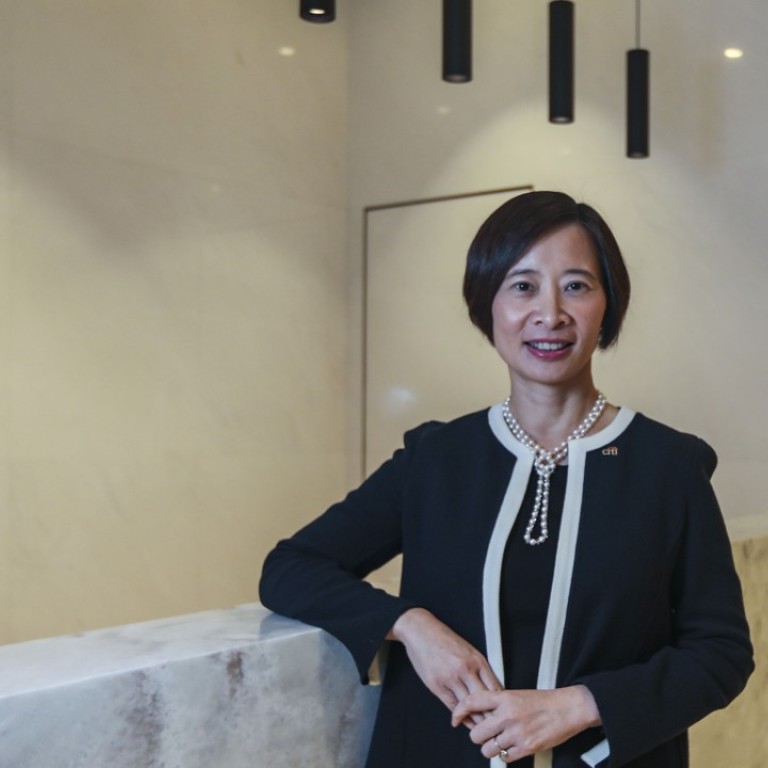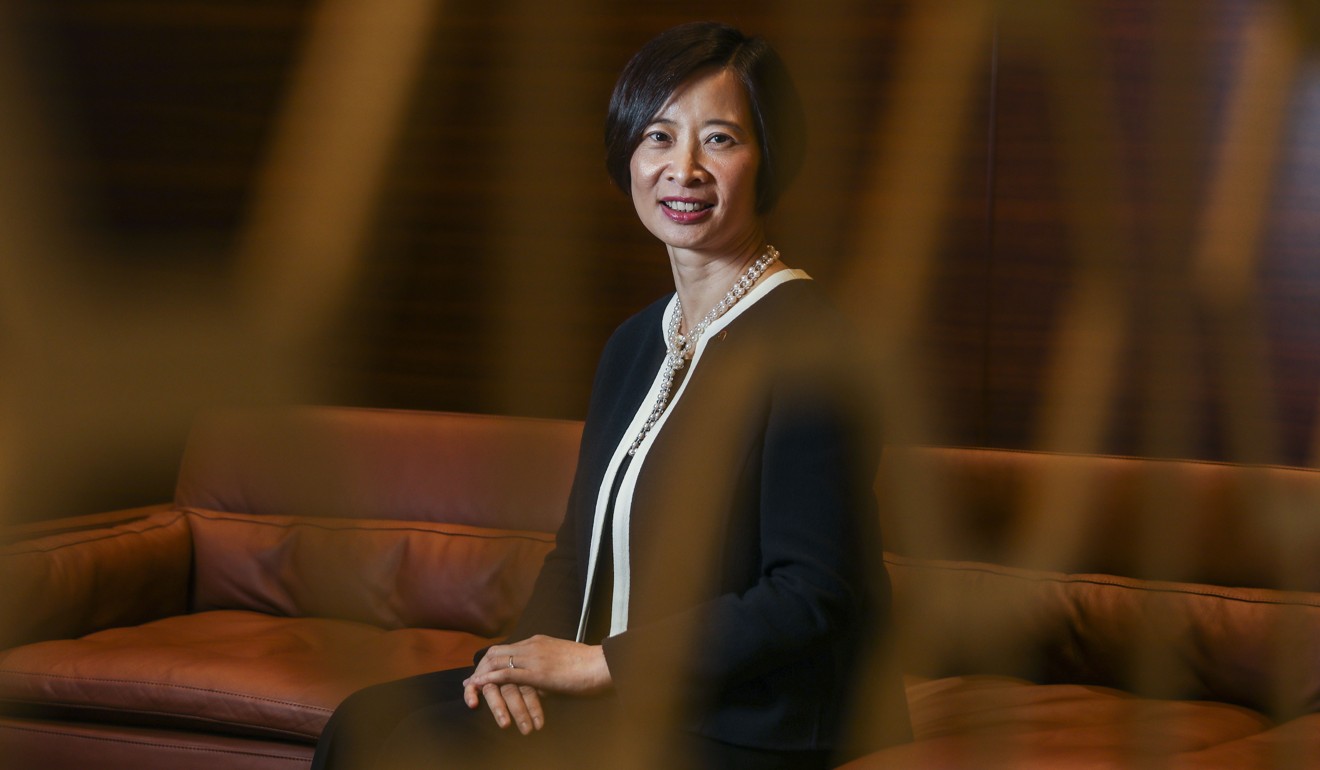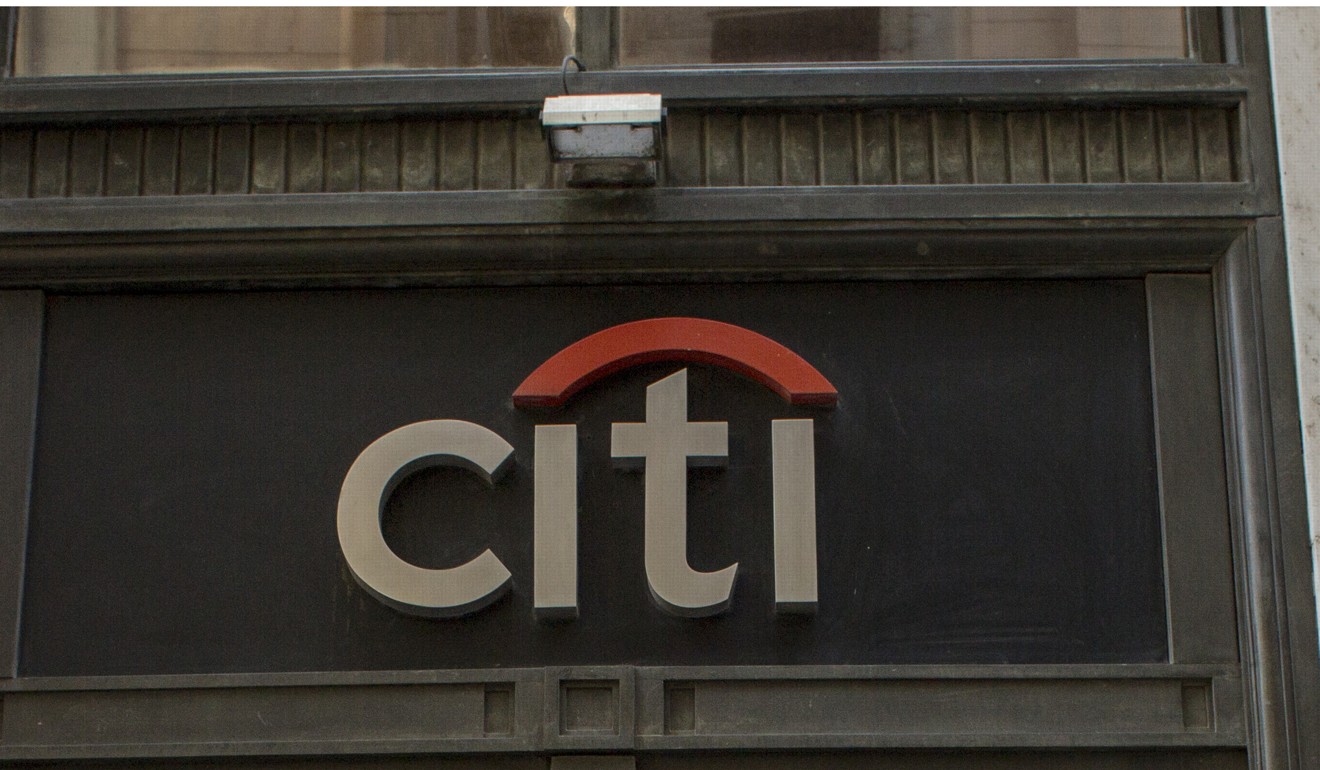
Older millionaires becoming just as digitally savvy as younger ones, says Citi’s new HK chief
Angel Ng is seeking to make lender’s workforce more diverse in terms of age, knowledge and background, as she targets the city’s wealthy with a raft of new online and mobile services
Citi’s new chief executive in Hong Kong says the US banking giant plans to cast its digital wealth management net far wider than its competitors, by targeting older as well as younger aspirational customers in future.
Angel Ng Yin-yee – who’s the first ever Hong Kong female to head the bank’s operations in the city and Macau – says she has been struck by a surprising phenomenon taking place in Hong Kong, since taking over the local reins in May.
It’s not just 18-35 year-olds who are now embracing online banking, as many believe, but the older generation of customers too.
That means under her watch, Citi will be just as focused on over 50 year-olds as it is on the younger generation, as it launches its latest digital offering, which is targeting clients with at least HK$1.5 million (US$192,000) to invest. Ng can understand the age group as she has just turned 50.
“It is a myth to believe that only young customers like to use their smartphone or computer to handle their bank transactions,” says Ng, who’s Hong Kong born and bred.

“My own mother, who is 80, has an iPhone and an iPad. It is not right to use age to determine who wants to use digital services.”
From Citi’s main office in Kwun Tong, Ng has a clear view over some of Hong Kong’s most desirable current real estate hotspots. The former Kai Tak airport site on Kowloon side is right outside, and across Victoria Harbour, numerous new blocks are mushrooming in Taikoo Shing and Quarry Bay.
Sales prices being racked up for flats in all three areas have been eye-watering in recent months, clear evidence, of course, that the city is still bulging with wealth, and Citi has its eyes firmly on attracting as much of it as possible.
My own mother, who is 80, has an iPhone and an iPad. It is not right to use age to determine who wants to use digital services
As a global industry leader, maybe it’s unsurprising that the lender is at the cutting edge of the online banking revolution.
But in a city where traditional banking practices are still prevalent, especially among more established local lenders, the 85 per cent take-up by its customers in Hong Kong of digital banking services, with 65 per cent of those active users, is a clear sign that change is happening fast among its client base.
Its highly visible retail arm, Citibank – which has 21 branches in Hong Kong – reports that all credit card account holders require a smartphone app to activate their new cards, and there are 70 per cent of customers now opting for electronic statements, not paper.
![Angel Ng: “We aim to shorten [Citi’s] corporate account opening time from the current two months to just two days by the first quarter of next year.” Photo: SCMP/Xiaomei Chen](https://cdn4.i-scmp.com/sites/default/files/images/methode/2018/09/30/f7a6d2ce-c06f-11e8-bfc4-8898d3e518ea_1320x770_122246.JPG)
The bank last week introduced “Citi Live Chat”, a video banking service for wealth management customers who have at least that HK$1.5 million in investible assets, which will connect investors directly via computer to advisers offering guidance on areas such as share trading, without the need to set foot in any branch. The service will expand to smartphone next month.
The bank only started offering video banking for wealthy clients, in India, last year, and it has been very well received with over half of the clients who qualify to use the services signing up for the service and the channel now contributing to 20 per cent of its monthly investment sales volume there.
Ng is now planning to digitalise Citi’s entire back-office operation in Hong Kong.
“That will speed up a lot of our work. For example, we aim to shorten the corporate account opening time from the current two months to just two days by the first quarter of next year,” she says.
Citi’s digitalisation plans started in the middle of last year, which is in line with the mission of Hong Kong Monetary Authority (HKMA) which in September last year introduced a range of measures to encourage all banks in Hong Kong to develop more fintech and digital banking.

Citibank is among a group of 21 banks to join the HKMA’s Faster Payment System, which from this coming Sunday (September 30) will allow customers to transfer funds at once between different lenders using various e-wallet-based payment methods.
But this movement towards digital, Ng insists, will not be at the expense of its high street presence, with branches remaining open, as long as customers still use them.
“We are still seeing sizeable traffic in most of our existing 21 branches,” she underlines.
Like many domestic and international lenders operating out of Hong Kong, she also has her targets set squarely on grabbing a share of what opportunities presented by two massive Chinese government economic initiatives – the Belt and Road (linking countries across the region along the ancient Silk Road trading routes), and the creation of the Greater Bay Area, a scheme to connect Hong Kong and Macau with nine mainland cities including Guangzhou and Shenzhen into an integrated economic and business hub.
Trade, of course, is dominating the Chinese business agenda at present, as the country jostles with the US over tit-for-tat tariff levels.
Ng’s US employer, which has huge international interests, calculates the trade stand-off is likely to shave around 1 per cent off mainland GDP next year.
“Mainland China could well expand more trade with other Asian markets in coming years to offset the impact of the US-China trade war,” she says.
“Our clients in Hong Kong are yet to feel the pain, but many are closely monitoring developments in the US-China trade war,
According to Citi, US and China trade only represented around 3.5 per cent of all trade worldwide last year while China had a growing trade relationship with other Asian markets. In contrast, the trade among Asian markets is expected to represent 35 per cent of all global trade by 2020.
Ng kicked off her career with HSBC as a credit officer in 1990 after gaining a Bachelor's Degree in Business Administration from Hong Kong’s Chinese University in 1990.

She then left the banking industry for seven years, joining consumer products giant Procter and Gamble before joining Citibank in 1998, in its consumer banking business.
She left the bank to accompany her husband, as he studied for a PhD in the US and rejoined the lender in Hong Kong in 2014, this time to head its retail banking division in the city. She is now the first Hong Kong female to head the entire operation, since the lender set up in the city in 1902.
As a dedicated advocate of diversity among the workforce, Ng is happy to report that 53 per cent of the bank’s staff are women, with 52 per cent of its assistant vice-presidents female.
“Diversity is not just about gender. It is also about knowledge, age and cultural background. Traditionally, we have hired people who studied banking and finance, but today we need more people from different academic backgrounds, from sectors such as technology, social sciences or literature,” she says.
“We also want people from different ethnic backgrounds to join, to create a mixed cultural environment.”

